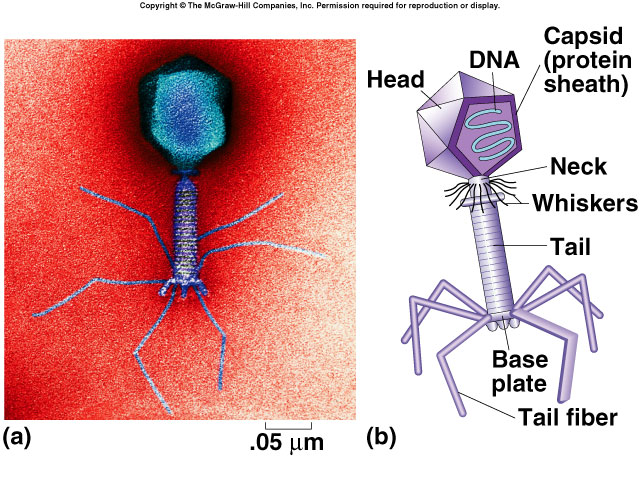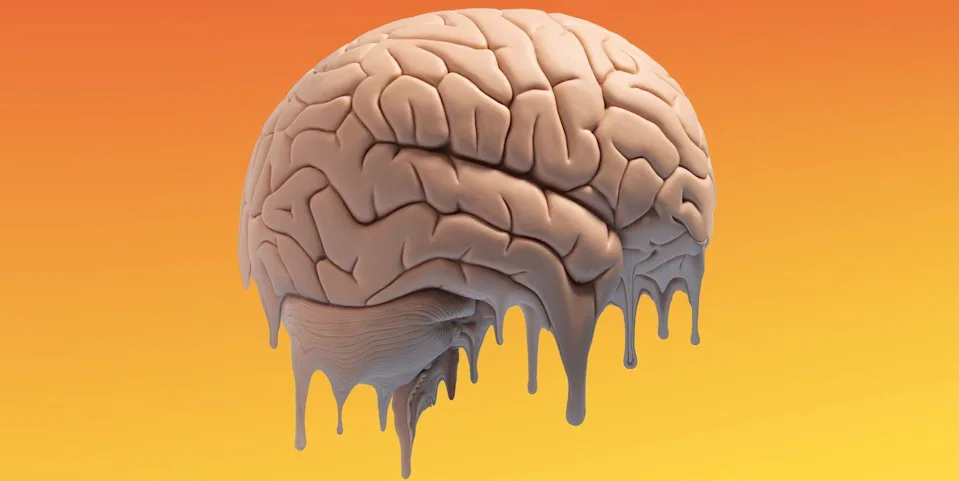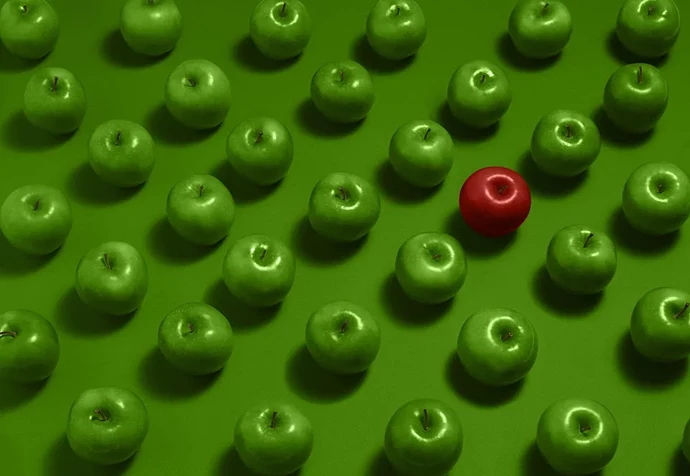Muz Murray would disagree with you; "In the beginning was Prajapati, the Brahman
In whom was the Word
And the Word was verily the Supreme Brahman"
He’s taught people how to access the Logos all his life… and might say; “I am not the word but the word and I are one” or something very similar… #Zen #Existentialism etc.
“Extra-extension-ism? It’s a conservatory doctrine!”
Nb. I was being topical actually… "Caroline Delbert
June 10, 2021·6 min read
Photo credit: PM Images - Getty Images
“Hearst Magazines and Verizon Media may earn commission or revenue on some items through the links below.”
- Is the universe a conscious being, like a gigantic widely dispersed human brain?
- Scientists have long questioned how consciousness and science mix.
- Two mathematicians have turned one theory into a crunchable math model.
In upcoming research, scientists will attempt to show the universe has consciousness. Yes, really. No matter the outcome, we’ll soon learn more about what it means to be conscious—and which objects around us might have a mind of their own.
What will that mean for how we treat objects and the world around us? Buckle in, because things are about to get weird.
What Is Consciousness?
The basic definition of consciousness intentionally leaves a lot of questions unanswered. It’s “the normal mental condition of the waking state of humans, characterized by the experience of perceptions, thoughts, feelings, awareness of the external world, and often in humans (but not necessarily in other animals) self-awareness,” according to the Oxford Dictionary of Psychology.
Scientists simply don’t have one unified theory of what consciousness is. We also don’t know where it comes from, or what it’s made of.
However, one loophole of this knowledge gap is that we can’t exhaustively say other organisms, and even inanimate objects, don’t have consciousness. Humans relate to animals and can imagine, say, dogs and cats have some amount of consciousness because we see their facial expressions and how they appear to make decisions. But just because we don’t “relate to” rocks, the ocean, or the night sky, that isn’t the same as proving those things don’t have consciousness.
This is where a philosophical stance called panpsychism comes into play, writes All About Space’s David Crookes:
“This claims consciousness is inherent in even the tiniest pieces of matter — an idea that suggests the fundamental building blocks of reality have conscious experience. Crucially, it implies consciousness could be found throughout the universe.”
It’s also where physics enters the picture. Some scientists have posited that the thing we think of as consciousness is made of micro-scale quantum physics events and other “spooky actions at a distance,” somehow fluttering inside our brains and generating conscious thoughts.
Photo credit: PM Images - Getty Images
The Free Will Conundrum
One of the leading minds in physics, 2020 Nobel laureate and black hole pioneer Roger Penrose, has written extensively about quantum mechanics as a suspected vehicle of consciousness. In 1989, he wrote a book called The Emperor’s New Mind, in which he claimed “that human consciousness is non-algorithmic and a product of quantum effects.”
Let’s quickly break down that statement. What does it mean for human consciousness to be “algorithmic”? Well, an algorithm is simply a series of predictable steps to reach an outcome, and in the study of philosophy, this idea plays a big part in questions about free will versus determinism.
Are our brains simply cranking out math-like processes that can be telescoped in advance? Or is something wild happening that allows us true free will, meaning the ability to make meaningfully different decisions that affect our lives?
Within philosophy itself, the study of free will dates back at least centuries. But the overlap with physics is much newer. And what Penrose claimed in The Emperor’s New Mind is that consciousness isn’t strictly causal because, on the tiniest level, it’s a product of unpredictable quantum phenomena that don’t conform to classical physics.
So, where does all that background information leave us? If you’re scratching your head or having some uncomfortable thoughts, you’re not alone. But these questions are essential to people who study philosophy and science, because the answers could change how we understand the entire universe around us. Whether or not humans do or don’t have free will has huge moral implications, for example. How do you punish criminals who could never have done differently?
Consciousness Is Everywhere
In physics, scientists could learn key things from a study of consciousness as a quantum effect. This is where we rejoin today’s researchers: Johannes Kleiner, mathematician and theoretical physicist at the Munich Center For Mathematical Philosophy, and Sean Tull, mathematician at the University of Oxford.
Kleiner and Tull are following Penrose’s example, in both his 1989 book and a 2014 paper where he detailed his belief that our brains’ microprocesses can be used to model things about the whole universe. The resulting theory is called integrated information theory (IIT), and it’s an abstract, “highly mathematical” form of the philosophy we’ve been reviewing.
In IIT, consciousness is everywhere, but it accumulates in places where it’s needed to help glue together different related systems. This mans the human body is jam-packed with a ton of systems that must interrelate, so there’s a lot of consciousness (or phi, as the quantity is known in IIT) that can be calculated. Think about all the parts of the brain that work together to, for example, form a picture and sense memory of an apple in your mind’s eye.
Photo credit: Biwa Studio - Getty Images
The revolutionary thing in IIT isn’t related to the human brain—it’s that consciousness isn’t biological at all, but rather is simply this value, phi, that can be calculated if you know a lot about the complexity of what you’re studying.
If your brain has almost countless interrelated systems, then the entire universe must have virtually infinite ones. And if that’s where consciousness accumulates, then the universe must have a lot of phi.
Hey, we told you this was going to get weird.
“The theory consists of a very complicated algorithm that, when applied to a detailed mathematical description of a physical system, provides information about whether the system is conscious or not, and what it is conscious of,” Kleiner told All About Space. “If there is an isolated pair of particles floating around somewhere in space, they will have some rudimentary form of consciousness if they interact in the correct way.”
Kleiner and Tull are working on turning IIT into this complex mathematical algorithm—setting down the standard that can then be used to examine how conscious things operate.
Think about the classic philosophical comment, “I think, therefore I am,” then imagine two geniuses turning that into a workable formula where you substitute in a hundred different number values and end up with your specific “I am” answer.
The next step is to actually crunch the numbers, and then to grapple with the moral implications of a hypothetically conscious universe. It’s an exciting time to be a philosopher—or a philosopher’s calculator." https://finance.yahoo.com/news/scientists-believe-universe-conscious-130000832.html
I truly believe (as Rhis does), that if we can grasp this concept we can avoid a whole host of nasties without the need to go reductio ad absurdum on the “causes”…sounds like superstition… eh?!
https://www.youtube.com/watch?v=8Tgnz6Qp-wQ



 You think science is badass. So do we.
You think science is badass. So do we. 





